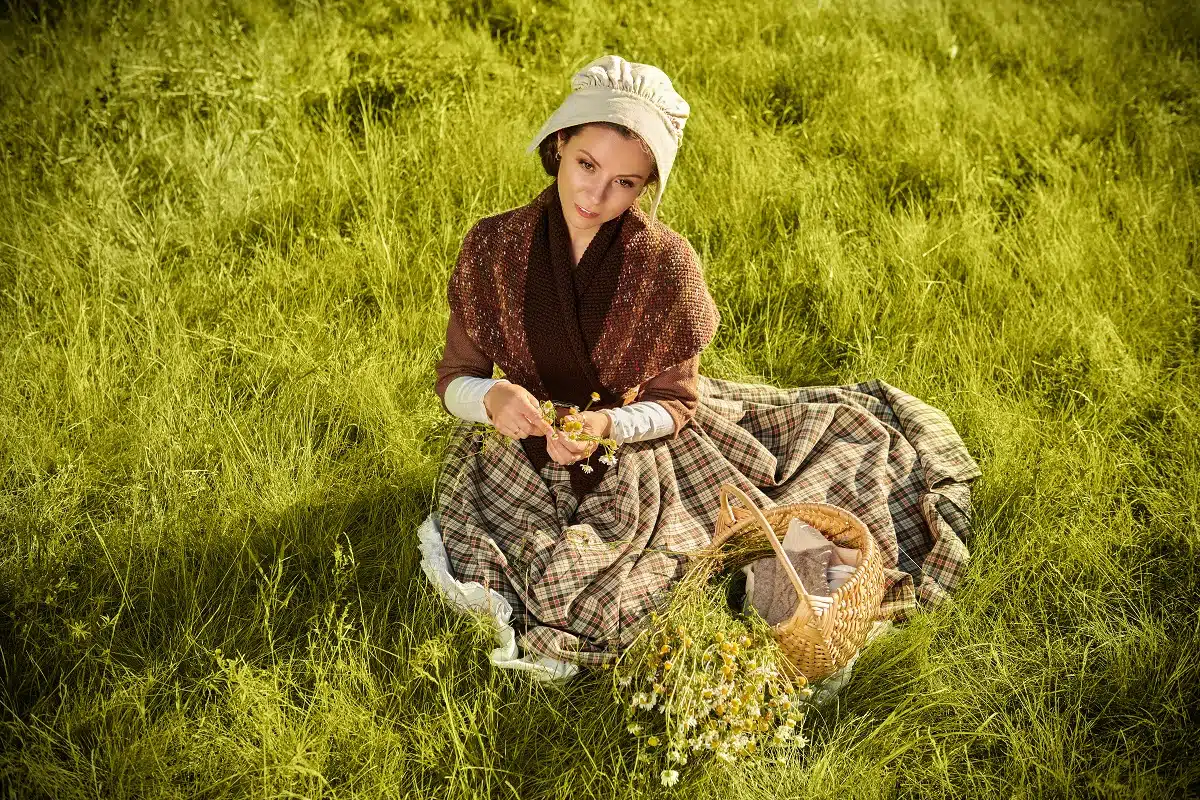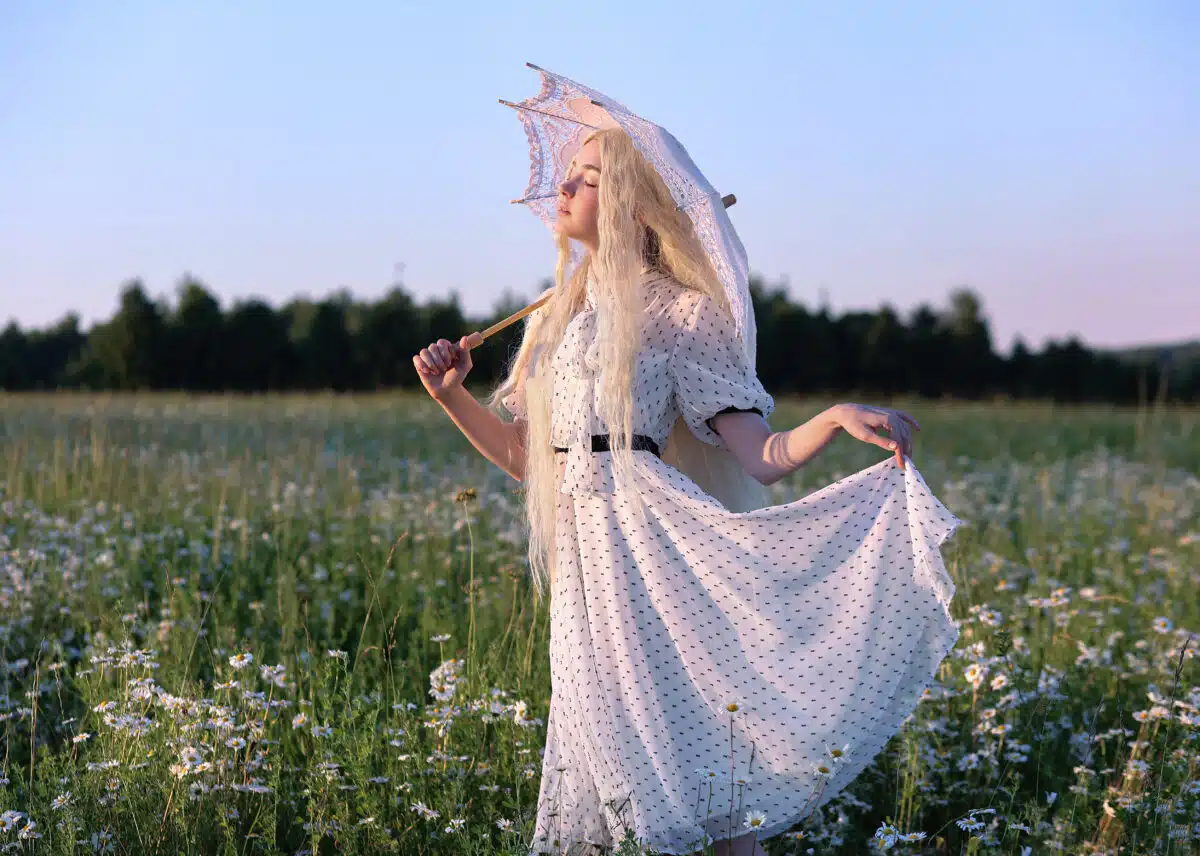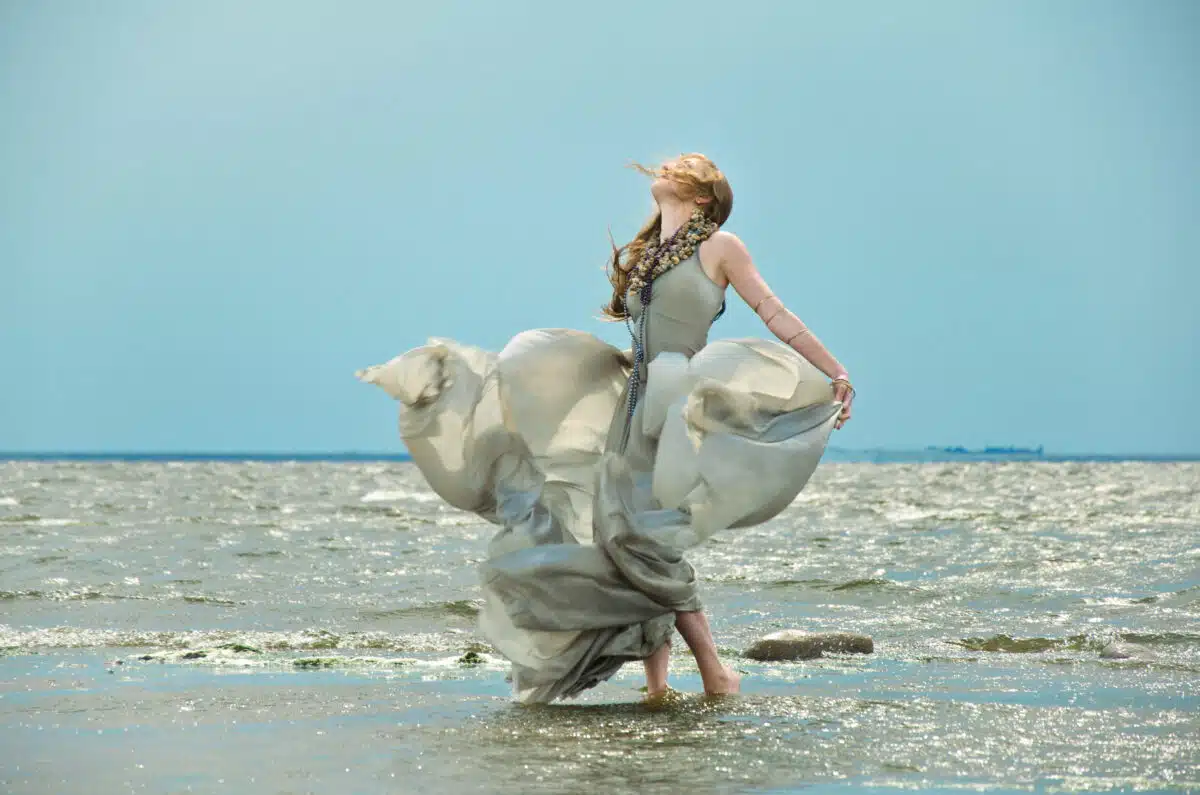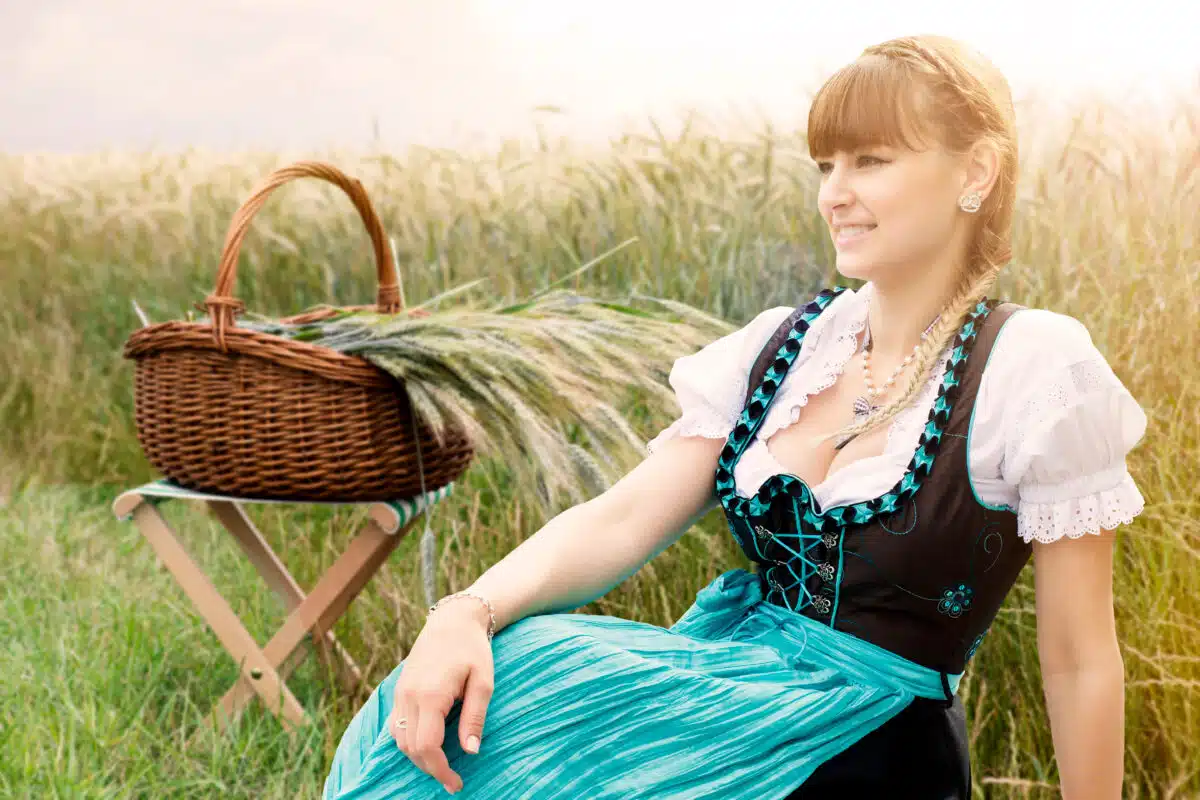Here are my favorite poems about hard workers categorized:
- Short poems about success and hard work
- Motivational poems about hard work
- Poems about work and perseverance
- Poems about hardworking men
So if you want the best poems about hard workers, then you’re in the right place.
Let’s dig into it!
- 67 Joyful Poems About Contentment
- 71 Devoted Poems About Loyalty
- 105 Enduring Poems About Patience
- 143 Encouraging Poems About Waiting
- 27 Uplifting Poems About Perseverance

Stirring Poems About Hard Workers

Get ready to be inspired and reminded of the incredible potential that lies within every hard worker’s soul.
From touching stanzas that celebrate the grit and perseverance of hard workers to verses that motivate the soul, our collection offers a spectrum of uplifting examples.
Every poem has been carefully curated to honor the sweat-soaked journeys of men who tirelessly pursue their dreams and leave an indelible mark on the world.
So sit back, relax, and let these poetic creations whisk you away to a realm filled with perseverance and success.
Let’s get right to it!
My #1 Favorite Poem About Hard Workers

“Work, Neighbor, Work!” by Louisa May Alcott
“Work, neighbor, work!
Do not stop to play;
Wander far and wide,
Gather all you may.
We are never like
Idle butterflies,
But like the busy bees,
Industrious and wise.”
Short Poems About Success and Hard Work

“Opportunity” by Edgar A. Guest
So long as men shall be on earth
There will be tasks for them to do,
Some way for them to show their worth;
Each day shall bring its problems new.
And men shall dream of mightier deeds
Than ever have been done before:
There always shall be human needs
For men to work and struggle for.
“Results And Roses” by Edgar A. Guest
The man who wants a garden fair,
Or small or very big,
With flowers growing here and there,
Must bend his back and dig.
The things are mighty few on earth
That wishes can attain.
Whate’er we want of any worth
We’ve got to work to gain.
It matters not what goal you seek
Its secret here reposes:
You’ve got to dig from week to week
To get Results or Roses.
“Success And Failure” by Edgar A. Guest
I do not think all failure’s undeserved,
And all success is merely someone’s luck;
Some men are down because they were unnerved,
And some are up because they kept their pluck.
Some men are down because they chose to shirk;
Some men are high because they did their work.
I do not think that all the poor are good,
That riches are the uniform of shame;
The beggar might have conquered if he would,
And that he begs, the world is not to blame.
Misfortune is not all that comes to mar;
Most men, themselves, have shaped the things they are.

“Success” by Madison Julius Cawein
I do not think all failure’s undeserved,
And all success is merely someone’s luck;
Some men are down because they were unnerved,
And some are up because they kept their pluck.
Some men are down because they chose to shirk;
Some men are high because they did their work.
I do not think that all the poor are good,
That riches are the uniform of shame;
The beggar might have conquered if he would,
And that he begs, the world is not to blame.
Misfortune is not all that comes to mar;
Most men, themselves, have shaped the things they are.
“True Nobility” by Edgar A. Guest
Who does his task from day to day
And meets whatever comes his way,
Believing God has willed it so,
Has found real greatness here below.
Who guards his post, no matter where,
Believing God must need him there,
Although but lowly toil it be,
Has risen to nobility.
For great and low there’s but one test :
‘Tis that each man shall do his best.
Who works with all the strength he can
Shall never die in debt to man.
“Success” by W. M. MacKeracher
What is success? In mad soul-suicide
The world’s vain spoils rapaciously to seize,
To pamper the base appetite of pride,
And live a lord in luxury and ease?
Is this success, whereof so many prate? –
To have the Midas-touch that turns to gold
Earth’s common blessings? to accumulate,
And in accumulation to grow old?
Nay, but to see and undertake with zest
The good most in agreement with our powers,
To strive, if need be, for the second best,
But still to strive, and glean the golden hours,
With eyes for nature, and a mind for truth,
And the brave, loving, joyous heart of youth.

“Success” by Emily Elizabeth Dickinson
Success is counted sweetest
By those who ne’er succeed.
To comprehend a nectar
Requires sorest need.
Not one of all the purple host
Who took the flag to-day
Can tell the definition,
So clear, of victory,
As he, defeated, dying,
On whose forbidden ear
The distant strains of triumph
Break, agonized and clear!
“Success” by Unknown
I’d rather be a Could Be
If I could not be an Are;
For a Could Be is a May Be,
With a chance of touching par.
I’d rather be a Has Been
Than a Might Have Been, by far;
For a Might Have Been has never been,
But a Has was once an Are.
“Success” by Emma Lazarus
Oft have I brooded on defeat and pain,
The pathos of the stupid, stumbling throng.
These I ignore to-day and only long
To pour my soul forth in one trumpet strain,
One clear, grief-shattering, triumphant song,
For all the victories of man’s high endeavor,
Palm-bearing, laureled deeds that live forever,
The splendor clothing him whose will is strong.
Hast thou beheld the deep, glad eyes of one
Who has persisted and achieved? Rejoice!
On naught diviner shines the all-seeing sun.
Salute him with free heart and choral voice,
‘Midst flippant, feeble crowds of spectres wan,
The bold, significant, successful man.

“Perseverance” by Leonardo da Vinci (William Wetmore Story, Translator)
In facile natures fancies quickly grow,
But such quick fancies have but little root.
Soon the narcissus flowers and dies, but slow
The tree whose blossoms shall mature to fruit.
Grace is a moment’s happy feeling, Power
A life’s slow growth; and we for many an hour
Must strain and toil, and wait and weep, if we
The perfect fruit of all we are would see.
“The Cooking Scribe” by Margherita Arlina Hamm
Wise in her daily work was she
To fruits, pies, cakes immense,
And not to Faith or polity
She plied her common sense.
In her opinion it was cooking
Made the paper worth the looking,
So she put sweet herbs and thyme
In her prose and in her rhyme,
And the hungry readers grew more every night,
As the circulation went quite out of sight.
“Work” by Henry van Dyke
Let me but do my work from day to day,
In field or forest, at the desk or loom,
In roaring market-place, or tranquil room;
Let me but find it in my heart to say,
When vagrant wishes beckon me astray—
“This is my work; my blessing, not my doom;
Of all who live, I am the one by whom
This work can best be done, in the right way.”
Then shall I see it not too great, nor small,
To suit my spirit and to prove my powers;
Then shall I cheerful greet the laboring hours,
And cheerful turn, when the long shadows fall
At eventide, to play and love and rest,
Because I know for me my work is best.

“Labour” by Robert Herrick
Labour we must, and labour hard
I’ th’ forum here, or vineyard.
“The Laborer” by John Clark
Toiling in the naked fields,
where no bush a shelter yields,
Needy labor dithering stands,
Beats and blows his numbing hands,
And upon the crumping snows
Stamps in vain to warm his toes..
Though all’s in vain to keep him warm ,
Poverty must brave the storm,
Friendship none its aid to lend,
Constant health his only friend ,
Granting leave to live in pain,
Giving strength to toil in vain.
“Perseverance” by Julius Hammer
If thou wouldst build a lasting temple,
Where beauty dwells, and worth abides,
Let thou not fear of earnest labor,
Thy courage check, or halt thy strides.
Enthusiasm and hope’s promise,
Are not enough to gain thy end;
Exhaustive strife with yielding matter,
Alone, can faultless form and blend.

“Never Say Fail” by Anonymous
Keep working ’tis wiser
Than sitting aside,
And dreaming and sighing
And waiting the tide.
In life’s earnest battle
They only prevail
Who daily march onward,
And never say fail!
In life’s rosy morning,
In manhood’s firm pride,
Let this be the motto
Your footsteps to guide :
In storm and in sunshine,
Whatever assail,
We’ll onward and conquer,
And never say fail!
“Persistence” by Walter Savage Landor
My hopes retire; my wishes as before
Struggle to find their resting-place in vain:
The ebbing sea thus beats against the shore;
The shore repels it; it returns again.
Motivational Poems About Hard Work

“Hard Work” by Edgar A. Guest
One day, in ages dark and dim,
A toiler, weary, worn and faint,
Who found his task too much for him,
Gave voice unto a sad complaint.
And seeking emphasis to give
Unto his trials (day ill-starred!)
Coupled to ‘work’ this adjective,
This little word of terror: Hard.
And from that day to this has work
Its frightening description worrn;
‘Tis spoken daily by the shirk,
The first cloud on the sky at morn.
To-day when there are tasks to do,
Save that we keep ourselves on guard
With fearful doublings them we view,
And think and speak of them as hard.
That little but ill-chosen word
Has wrought great havoc with men’s souls,
Has chilled the hearts ambition stirred
And held the pass to splendid goals.
Great dreams have faded and been lost,
Fine youth by it been sadly marred
As plants beneath a withering frost,
Because men thought and whispered: ‘Hard.’
Let’s think of work in terms of hope
And speak of it with words of praise,
And tell the joy it is to grope
Along the new, untrodden ways!
Let’s break this habit of despair
And cheerfully our task regard;
The road to happiness lies there:
Why think or speak of it as hard?
“The Dull Road” by Edgar A. Guest
It’s the dull road that leads to the gay road;
The practice that leads to success;
The work road that leads to the play road;
It is trouble that breeds happiness.
It’s the hard work and merciless grinding.
That purchases glory and fame;
It’s repeatedly doing, nor minding
The drudgery drear of the game.
It’s the passing up glamor or pleasure
For the sake of the skill we may gain,
And in giving up comfort or leisure
For the joy that we hope to attain.
It’s the hard road of trying and learning,
Of toiling, uncheered and alone,
That wins us the prizes worth earning,
And leads us to goals we would own.
“How Do You Tackle Your Work?” by Edgar A. Guest
How do you tackle your work each day?
Are you scared of the job you find?
Do you grapple the task that comes your way
With a confident, easy mind?
Do you stand right up to the work ahead
Or fearfully pause to view it?
Do you start to toil with a sense of dread
Or feel that you’re going to do it?
You can do as much as you think you can,
But you’ll never accomplish more;
If you’re afraid of yourself, young man,
There’s little for you in store.
For failure comes from the inside first,
It’s there if we only knew it,
And you can win, though you face the worst,
If you feel that you’re going to do it.
Success ! It’s found in the soul of you,
And not in the realm of luck!
The world will furnish the work to do,
But you must provide the pluck.
You can do whatever you think you can,
It’s all in the way you view it .
It’s all in the start that you make, young man:
You must feel that you’re going to do it.
How do you tackle your work each day?
With confidence clear, or dread?
What to yourself do you stop and say
When a new task lies ahead?
What is the thought that is in your mind?
Is fear ever running through it?
If so, just tackle the next you find
By thinking you’re going to do it.

“Courage” by Edgar A. Guest
Courage isn’t a brilliant dash,
A daring deed in a moment’s flash;
It isn’t an instantaneous thing
Born of despair with a sudden spring
It isn’t a creature of flickered hope
Or the final tug at a slipping rope;
But it’s something deep in the soul of man
That is working always to serve some plan.
Courage isn’t the last resort
In the work of life or the game of sport;
It isn’t a thing that a man can call
At some future time when he’s apt to fall;
If he hasn’t it now, he will have it not
When the strain is great and the pace is hot.
For who would strive for a distant goal
Must always have courage within his soul.
Courage isn’t a dazzling light
That flashes and passes away from sight;
It’s a slow, unwavering, ingrained trait
With the patience to work and the strength to wait.
It’s part of a man when his skies are blue,
It’s part of him when he has work to do.
The brave man never is freed of it.
He has it when there is no need of it.
Courage was never designed for show;
It isn’t a thing that can come and go;
It’s written in victory and defeat
And every trial a man may meet.
It’s part of his hours, his days and his years,
Back of his smiles and behind his tears.
Courage is more than a daring deed:
It’s the breath of life and a strong man’s creed.
“Success” by Henry Lawson
Did you see that man riding past,
With shoulders bowed with care?
There’s failure in his eyes to last,
And in his heart despair.
He seldom looks to left or right,
He nods, but speaks to none,
And he’s a man who fought the fight
God knows how hard! and won.
No great review could rouse him now,
No printed lies could sting;
No kindness smooth his knitted brow,
Nor wrong one new line bring.
Through dull, dumb days and brooding nights,
From years of storm and stress,
He’s riding down from lonely heights
The Mountains of Success.
He sees across the darkening land
The graveyards on the coasts;
He sees the broken columns stand
Like cold and bitter ghosts;
His world is dead while yet he lives,
Though known in continents;
His camp is where his country gives
Its pauper monuments.
“Through Life” by Emily Thornton Charles
Entering life, we come fearfully
Into the new and unknown;
Trembling and terrified, tearfully,
Lifting life’s burden alone,
Braving its danger more cheerfully
When we the stronger have grown.
Still, like old Earth, so receivingly
Taking the bad and the good,
Taking, nor choosing, believingly,
Ever the best, as we could;
Sadly repenting, then grievingly
Striving to do as we should.
Long may we wander suspectingly
Ingrates whom passions enslave;
Scornfully, proudly, rejectingly,
Serving the mercy God gave;
Nor look we to him who protectingly
His arm forth stretches to save.
Thoughtlessly, carelessly, musingly,
Playing at life’s chequered game;
Ever the tally-sheet losingly
Scoreth a list to our name;
Bravely our conscience accusingly
Stirreth our senses to shame.
Looking to conscience inquiringly,
Thoughtlessness seemeth a sin;
Working and striving untiringly,
So must the battle begin.
Faith, hope and love will inspiringly
Teach us how life we may win.
May we our duty do darefully,
Strengthening careworn, oppressed;
Threading our way ever carefully
Through snares, to the home of the blest;
Hopefully, cheerfully, prayerfully,
Finding in heaven a rest.
Striving with Sin, Sin enslavingly
Holding us ever so fast;
Looking for mercy most cravingly
Through the dark clouds sweeping past;
Tenderly, lovingly, savingly,
Jesus redeemeth at last.

“To Mary” by Eaglestone
Life is short, life is fleeting,
Earnest work have we to do,
Evermore to keep repeating,
Holy deeds divine and true.
Never, Mary, let us falter
In our journey to the skies,
Keeping all upon the Altar,
For Faith our priest to sacrifice.
Life is short, life is fleeting,
Changing care we both shall have,
F’er we see, and hear the greeting,
Of our Lord beyond the grave.
Never, Mary, let us falter
In our journey to the skies;
Keeping all upon the Altar,
For Faith our priest to sacrifice.
“Thought” by Emily Thornton Charles
Oh, thought! that is deeper and vaster
Than the cavernous depth of the sea,
I will still be of artists the master,
And portray an ideal of thee.
Sweet lips that are dewy and tender
As the soft budding heart of the rose,
Bright eyes, filled with deepening splendor,
While musing o’er them my thought grows.
‘Neath the lips, pearly gems whitely gleaming,
Cheeks, the lily, the rose, and the down,
The brow, pure and fair, ‘ twould be seeming
To crown with a matronly crown.
In the depth of the eye now is glowing
Asmile, or a tear- drop, I see;
Through them the sweet image is showing
A pictured idea to me.
I am sure ‘ tis provoking and shocking!
I essayed not to picture a group,
Yet see how the thoughts will come flocking,
‘Stead of one, here comes a whole troop.
Now in sadness and deep lamentation
I demolish the daub I had wrought;
Humbly seeking a new avocation,
I will work in the garden of thought.
I will labor and cease all complaining,
Thought still makes my life- work sublime,
For her rosebuds shall bloom by my training
Into beautiful flowers of rhyme.
“Sowing And Reaping” by Hager
In spring we plough the field and till the soil ,
And sow the tiny seeds on either hand,
And soon, repaying, as it were, our toil,
The blades of green begin to clothe the land.
Then carefully we work, we watch, we wait,
While nourished by the summer sun and rain,
Till ‘ neath the autumn skies with hearts elate,
We gather in at last the ripened grain.
And so, if we, in Life’s fair autumn days,
Would garner in the fruit of loving deeds,
Of Christian word and work, in all our ways,
We must in early springtime sow the seeds.
The loving thoughts we shelter in the heart,
Upspringing there, the blades of good shall grow,
Which kept by watchful care from weeds apart,
The evil thoughts which we too often sow,
Shall flourish, grow in strength, and soon increase,
And we in Life’s last days the fruit shall see,
Reward of life well spent, -eternal peace, –
For ” as our sowing, shall our reaping be.”

“Labor” by Frances Sargent Osgood
Pause not to dream of the future before us;
Pause not to weep the wild cares that come o’er us;
Hark! how Creation’s deep, musical chorus,
Unintermitting, goes up into Heaven!
Never the ocean-wave falters in flowing;
Never the little seed stops in its growing;
More and more richly the rose-heart keeps glowing,
Till from its nourishing stem it is riven.
“Labor is worship!”—the robin is singing;
“Labor is worship!”—the wild-bee is ringing;
Listen! that eloquent whisper upspringing
Speaks to thy soul from out Nature’s great heart.
From the dark cloud flows the life-giving shower;
From the rough sod blows the soft-breathing flower;
From the small insect, the rich coral bower;
Only man, in the plan, shrinks from his part.
Labor is life! ’T is the still water faileth;
Idleness ever despaireth, bewaileth;
Keep the watch wound, for the dark rust assaileth;
Flowers droop and die in the stillness of noon.
Labor is glory!—the flying cloud lightens;
Only the waving wing changes and brightens;
Idle hearts only the dark future frightens:
Play the sweet keys, wouldst thou keep them in tune!
Labor is rest from the sorrows that greet us,
Rest from all petty vexations that meet us,
Rest from sin-promptings that ever entreat us,
Rest from world-sirens that lure us to ill,
Work—and pure slumbers shall wait on thy pillow;
Work—thou shalt ride over Care’s coming billow;
Lie not down wearied ’neath Woe’s weeping-willow;
Work with a stout heart and resolute will!
Labor is health! Lo! the husbandman reaping,
How through his veins goes the life-current leaping!
How his strong arm, in its stalwart pride sweeping,
True as a sunbeam the swift sickle guides!
Labor is wealth—in the sea the pearl groweth;
Rich the queen’s robe from the frail cocoon floweth;
From the fine acorn the strong forest bloweth:
Temple and statue the marble block hides.
Droop not, though shame, sin, and anguish are round thee!
Bravely fling off the cold chain that hath bound thee!
Look to yon pure Heaven smiling beyond thee;
Rest not content in thy darkness—a clod!
Work—for some good, be it ever so slowly;
Cherish some flower, be it ever so lowly;
Labor!—all labor is noble and holy!
Let thy great deeds be thy prayer to thy God!
“Never Despair” by Unknown
The opal- hued and many- perfumed morn
From gloom is born;
From out the sullen depth of ebon night
The stars shed light;
Gems in the rayless caverns of the earth
Have their slow birth;
From wondrous alchemy of winter hours
Come summer flowers;
The bitter waters of the restless main
Give gentle rain;
The fading bloom and dry seed bring once more
The year’s fresh store;
Just sequences of clashing tones afford
The full accord;
Through weary ages, full of strife and ruth,
Thought reaches truth;
Through efforts, long in vain, prophetic need
Begets the deed;
Nerve then thy soul with direst need to cope;
Life’s brightest hope
Lies latent in Fate’s deadliest lair
Never despair!
“Gitanjali 11” by Rabindranath Tagore
Leave this chanting and singing and telling of beads! Whom dost thou worship in this lonely dark corner of a temple with doors all shut? Open thine eyes and see thy God is not before thee!
He is there where the tiller is tilling the hard ground and where the path-maker is breaking stones. He is with them in sun and in shower, and his garment is covered with dust. Put off thy holy mantle and even like him come down on the dusty soil!
Deliverance? Where is this deliverance to be found? Our master himself has joyfully taken upon him the bonds of creation; he is bound with us all for ever.
Come out of thy meditations and leave aside thy flowers and incense! What harm is there if thy clothes become tattered and stained? Meet him and stand by him in toil and in sweat of thy brow.

“Dare and Do” by Eaglestone
To do and dare,
Be this thy care,
Though every path be haunted;
So dare and do
Whate’er is true,
E’en though thy heart be taunted
By many a fear
And prospect drear,
And many a thorn be planted.
Yes, do and dare,
And thou shalt wear
Full blooming joy’s supernal;
So dare and do,
And over you
Shall beam the skies diurnal,
Till up from this
You rise to bliss
Unclouded and eternal.
From “A Poor Scholar, Or My Own Difficulties” by William Telford
By the sweat of your brow , you must earn your
own bread
Want of learning was one, and hard work was the
other,
That strove the young flame in my head thus to smother;
Forsooth , all their striving was greatly in vain,
Lest they cut off my head, or else scooped out my
brain .
So I rhymed without grammar in byre and in field,
My neighbors oft called me a wonderful chield;
And oft at our work for a laugh and a jest,
They would give me some words, my young genius
to test.
I would then scratch my head, and in two minutes
time,
Just give them their answer instanter in rhyme ;
I used not a pen , nor a pencil of lead,
But I carried my manuscript all in my head .
When I saw the black snail with its two pointed
horns,
Or heard the blythe black -bird sing up on the
thorus;
As I watched the cruel boys, killing bees for their
honey,
Every one got a verse, very simple, but funny.
In our own house at night, when I cleaned out my
bicker,
When my bones got a rest –0 , my muse , it went
quicker,
If my brothers or sisters said ought unto me,
How they laughed, when their answer in rhyme I
did gie.
From “Acacian Lyrics” by Lurania A. H. Munday
Awake! and work while yet ’tis day,
The night soon comes, make no delay;
Earth’s weeping ones-His precious poor,
Have claims upon your love-your store,
Go smooth their thorny way.
“Brothers of the mystic tie,”
Hast thou heard the orphan’s cry?-
To the sick hast given relief?
Hast thou stay’d the widow’s grief?
And check’d the mourner’s sigh?
Say what the work thy hands have sought,
Tell, what the joys thy deeds have brought?
O’er the old year’s varied track,
Cast thy mental vision back
Hast in the quarry wrought?
Brother, of the social band,
O’er the sea in every land,
Tell us if in love thou hast,
Sought to shed those glories vast,
Of Him the Master Grand?
Know’st thou of our faith sublime
We brethren have in every clime,
Who feel the same good shepherd’s care
Alike his love and beauty share
Through all life’s trial- time?
Then strive in harmony to dwell,
And every stormy passion quell,
Till through our Father’s heavenly grace,
We reach that bless’d, most holy place
Where ceaseless anthems swell.
Though darkly now, in yon bright sky
We’ll see each other eye to eye;
Our work of love and duty done,
And passed the ” veils ” -acceptance won,
In that Grand Lodge on High.

“Do Your Best” by Anonymous
Do your best, your very best,
And do it every day,
Little boys and little girls:
That is the wisest way.
Whatever work comes to your hand,
At home, or at your school,
Do your best with right good will;
It is a golden rule.
Still do your best, if but at taw
You join the merry ring;
Or if you play at battledoor;
Or if you skip, or swing.
Or if you write your copy-book,
Or if you read or spell,
Or if you seam, or hem, or knit,
Be sure you do it well.
For he who always does his best,
His best will better grow;
But he who shirks or slights his task,
He lets the better go.
What if your lessons should be hard?
You need not yield to sorrow;
For he who bravely works to-day,
His tasks grow light to-morrow.
“The Busy Bee” by Isaac Watts
How doth the little busy bee
Improve each shining hour,
And gather honey all the day
From every opening flower!
How skilfully she builds her cell!
How neat she spreads the wax!
And labors hard to store it well
With the sweet food she makes.
In works of labor or of skill
I would be busy too;
For Satan finds some mischief still
For idle hands to do.
In books, or work, or healthful play,
Let my first years be passed,
That I may give for every day
Some good account at last.
“The Builders” by H. W. Longfellow
All are architects of Fate,
Working in these walls of Time;
Some with massive deeds and great,
Some with ornaments of rhyme.
Nothing useless is, or low;
Each thing in its place is best;
And what seems but idle show
Strengthens and supports the rest.
For the structure that we raise,
Time is with materials filled:
Our to-days and yesterdays
Are the blocks with which we build.
Truly shape and fashion these;
Leave no yawning gaps between:
Think not, because no man sees,
Such things will remain unseen.
In the elder days of Art
Builders wrought with greatest care
Each minute and unseen part;
For the gods see everywhere.
Let us do our work as well,
Both the unseen and the seen,
Make the house, where Gods may dwell.
Beautiful, entire, and clean.
Else our lives are incomplete,
Standing in these walls of Time,
Broken stairways, where the feet
Stumble as they seek to climb.
Build to-day, then, strong and sure,
With a firm and ample base;
And ascending and secure.
Shall to-morrow find its place.
Thus alone can we attain
To those turrets, where the eye
Sees the world as one vast plain,
And one boundless reach of sky.

“The Dignity of Labor” by Werner Eggerth
When my spirits are fettered, and my heart filled with gloom,
And the air seems to breathe destruction and doom;
When the songs of the birds no longer me cheer,
And the sunbeams of hope are displaced by fear,
And ready to totter, cheer’s fostering prop,
Then I go to the work-bench that stands in my shop.
There stands my old comrade, my true and tried friend,
In times of grim heartache, me now to defend.
Soon the ring of the hammer, and the whiz of the saw,
Dispel the dark phantoms, who flee with awe
From the dignified angel who guards the shrine
Devoted to labor, to labor divine.
Labor, like virtue, makes strong us, and free,
And God is delighted its footprints to see.
Labor is the only, the sure antidote
Our sorrows to lighten (and joys to promote),
Which burden our mind, and make us quake,
And threaten our heart with grief to break.
Labor is the power which all should seek,
Who desire to ascend to the loftiest peak
Of success, of honor, of undying fame;
Like Kepler, the searcher of illustrious name,
Like Cæsar, who conquered the world alone,
Like Franklin, whose star so brightly shone.
And those contented with a humbler lot
A torture invented us to disgrace,
For every being must fill its place
In the workshop of Nature. God did decree
That toil be the lever the slave to free.
From “Songs of Labor” by John Greenleaf Whittier
So haply these, my simple lays
Of homely toil , may serve to show
The orchard bloom and tasselled maize
That skirt and gladden duty’s ways,
The unsung beauty hid life’s common things below.
Haply from them the toiler, bent
Above his forge or plough, may gain
A manlier spirit of content,
And feel that life is wisest spent
Where the strong working hand makes strong the
working brain.
The doom which to the guilty pair
Without the walls of Eden came,
Transforming sinless ease to care
And rugged toil, no more shall bear
The burden of old crime, or mark of primal shame.
A blessing now, a curse no more;
Since He, whose name we breathe with awe,
The coarse mechanic vesture wore,
A poor man toiling with the poor,
In labor, as in prayer, fulfilling the same law.
Poems About Work and Perseverance

“The Sulkers” by Edgar A. Guest
The world’s too busy now to pause
To listen to a whiner’s cause;
It has no time to stop and pet
The sulker in a peevish fret,
Who wails he’ll neither work nor play
Because things haven’t gone his way.
The world keeps plodding right along
And gives its favors right or wrong
To all who have the grit to work
Regardless of the fool or shirk.
The world says this to every man:
Go out and do the best you can. “
The world’s too busy to implore
The beaten one to try once more;
‘Twill help him if he wants to rise,
And boost him if he bravely tries,
And shows determination grim;
But it won’t stop to baby him.
The world is occupied with men
Who fall but quickly rise again;
But those who whine because they’re hit
And step aside to sulk a bit
Are doomed some day to wake and find
The world has left them far behind.
“Promotion” by Edgar A. Guest
Promotion comes to him who sticks
Unto his work and never kicks,
Who watches neither clock nor sun
To tell him when his task is done;
Who toils not by a stated chart,
Defining to a jot his part,
But gladly does a little more
Than he’s remunerated for.
The man, in factory or shop,
Who rises quickly to the top,
Is he who gives what can’t be bought:
Intelligent and careful thought.
No one can say just when begins
The service that promotion wins,
Or when it ends ; ‘ tis not defined
By certain hours or any kind
Of system that has been devised;
Merit cannot be systemized.
It is at work when it’s at play;
It serves each minute of the day;
‘Tis always at its post, to see
New ways of help and use to be.
Merit from duty never slinks,
Its cardinal virtue is—it thinks!
Promotion comes to him who tries
Not solely for a selfish prize,
But day by day and year by year
Holds his employer’s interests dear.
Who measures not by what he earns
The sum of labor he returns,
Nor counts his day of toiling through
Till he’s done all that he can do.
His strength is not of muscle bred,
But of the heart and of the head.
The man who would the top attain
Must demonstrate he has a brain.
“Success” by Ella Wheeler Wilcox
As we gaze up life’s slope, as we gaze
In the morn, ere the dewdrops are dry,
What splendour hangs over the ways,
What glory gleams there in the sky,
What pleasures seem waiting us, high
On the peak of that beauteous slope,
What rainbow-hued colours of hope,
As we gaze!
As we climb up the hill, as we climb,
Our hearts, our illusions, are rent:
For Fate, who is spouse of old Time,
Is jealous of youth and content.
With brows that are brooding and bent
She shadows our sunlight of gold,
And the way grows lonely and cold
As we climb.
As we toil on, through trouble and pain,
There are hands that will shelter and feed;
But once let us dare to ATTAIN –
They will bruise our bare hearts till they bleed.
‘Tis the worst of all crimes to succeed,
Know this as ye feast on a crust,
Know this in the darkness and dust,
Ye who climb.
As we stand on the heights of success,
Lo! success seems as sad as defeat!
Through the lives we may succour and bless
Alone may its litter turn sweet!
And the world lying there at our feet,
With its cavilling praise and its sneer,
We must pity, condone, but not hear,
Where we stand.
As we live on those heights, we must live
With the courage and pride of a god;
For the world, it has nothing to give
But the scourge of the lash and the rod.
Our thoughts must be noble and broad,
Our purpose must challenge men’s gaze,
While we seek not their blame or their praise
As we live.

“Work and Contemplation” by Elizabeth Barrett Browning
The Woman singeth at her spinning wheel
A pleasant chant, ballad, or barcarole;
She thinketh of her song, upon the whole,
Far more than of her flax; and yet the reel
Is full, and artfully her fingers feel
With quick adjustment, provident control,
The lines, too subtly twisted to unroll,
Out to a perfect thread. I hence appeal
To the dear Christian Church, that we may do
Our Father’s business in these temples mirk,
Thus swift and steadfast, thus intent and strong;
While thus, apart from toil, our souls pursue
Some high, calm, spheric tune, and prove our work
The better for the sweetness of our song.
“Freedom” by Clara Jessup Moore
My work is done; the eventide is here;
My wages now I ask of Thee.
Not gold nor jewels do I crave, my Lord,
But, Master, set my spirit free!
The shadows lengthen on my glacier path,
Heavier the chains that fret me here;
I ask for freedom from their crushing weight.
‘Tis life, not death, I hold in fear!
My work is done; the hour of rest draws near;
The vesper-bells toll clear and sweet.
Unto the agéd should be spared, my Lord,
The pains that torture tired feet.
According to my need, I ask of Thee
That Thou bestow the promised wage.
If faithful I have been in small and great,
Wilt thou not now my pangs assuage?
My work is done; take me within the gate
Where enter only those Thou wilt;
A city lighted by Thy glory great,
The city not by mortals built.
Come quickly, I beseech, and freely give
The guerdon in its full degree,
Which Thou hast promised unto every man
According as his work shall be.
Yet, Master, not my will, but thine, be done.
On Thee I wait; forgive my prayer!
Thou knowest best if here I’m needed still,
Thou knowest if I’m needed there.
The wages are not due till work is done:
Submissive to the end I’ll be,
Knowing Thy precious promise never fails,
That my reward still rests with Thee!
“Haste not! Rest not!” by Johann Wolfgang von Goethe
“Ohne Hast, ohne Rast.”
Without haste! without rest!
Bind the motto to thy breast;
Bear it with thee as a spell:
Storm and sunshine guard it well!
Heed not flowers that round thee bloom,
Bear it onward to the tomb.
Haste not! Let no thoughtless deed
Mar for aye the spirit’s speed;
Ponder well, and know the right;
Onward, then, with all thy might.
Haste not! Years can ne’er atone
For one reckless action done.
Rest not! Life is sweeping by;
Go and dare before you die:
Something mighty and sublime
Leave behind to conquer time!
Glorious ’t is to live for aye,
When these forms have passed away.
Haste not! Rest not! Calmly wait;
Meekly bear the storms of fate!
Duty be thy polar guide,—
Do the right, whate’er betide!
Haste not! Rest not! Conflicts past,
God shall crown thy work at last.

“Perseverance” by William Shakespeare
Time hath, my lord , a wallet at his back,
Wherein he puts alms for oblivion,
Agreat- sized monster of ingratitude’s:
Those scraps are good deeds past, which are devour’d
As fast as they are made, forgot as soon
As done. Perseverance, dear my lord,
Keeps honour bright ; to have done, is to hang
Quite out of fashion, like a rusty mail,
In monumental mockery. Take the instant way,
For honour travels in a strait so narrow,
Where one but goes abreast. Keep then the path;
For emulation hath a thousand sons,
That one by one pursue; if you give way,
Or hedge aside from the direct forthright,
Like to an enter’d tide, they all rush by,
And leave you hindmost.
Or, like a gallant horse, fallen in first rank,
Lie there for pavement to the abject rear,
O’er-run and trampled on: then what they do in present,
Though less than yours in past, must o’ertop yours;
For time is like a fashionable host,
That slightly shakes his parting guest by the hand,
And with his arms outstretch’d, as he would fly,
Grasps in the comer : welcome ever smiles,
And farewell goes out sighing. Oh! let not virtue seek
Remuneration for the thing it was; for beauty, wit,
High birth, vigour of bone, desert in service,
Love, friendship, charity, are subjects all
To envious and calumniating time.
“Labor” by Unknown
All life is labor, only death is rest:
Nature again prepares her flow’r and leaf
When sun-browned autumn reels with fruit and sheaf,
And woods are in their golden vesture drest;
The mountain drains the torrent from the breast
Of clouds full pastured where the tropic reef
Is ocean- foamed, and pours along its fief
Of purple plain, wide flowing rivers prest
With clover banks and slopes of waving corn;
Th’ unwearied sun keeps evermore his round
Among the siren stars, as on the morn
He first rose up amid the blue profound,
Of God’s almighty will and labor born,
While angels gazed and sang in heaven’s bound.
“The Angler” by homas Buchanan Read
But look ! o’er the fall see the angler stand,
Swinging his rod with skillful hand;
The fly at the end of his gossamer line
Swims through the sun like a summer moth,
Till, dropt with a careful precision fine,
It touches the pool beyond the froth.
A-sudden, the speckled hawk of the brook
Darts from his covert and seizes the hook.
Swift spins the reel; with easy slip
The line pays out, and the rod , like a whip,
Lithe and arrowy, tapering, slim,
Is bent to bow o’er the brooklet’s brim,
Till the trout leaps up in the sun, and flings
The spray from the flash of his finny wings;
Then falls on his side, and , drunken with fright,
Is towed to the shore like a staggering barge,
Till beached at last on the sandy marge,
Where he dies with the hues of the morning light,
While his sides with a cluster of stars are bright.
The angler in the basket lays
His speckled prize, and goes his ways.

“Gitanjali 42” by Rabindranath Tagore
Early in the day it was whispered that we should sail in a boat, only thou and I, and never a soul in the world would know of this our pilgrimage to no country and to no end.
In that shoreless ocean, at thy silently listening smile my songs would swell in melodies, free as waves, free from all bondage of words.
Is the time not come yet? Are there works still to do? Lo, the evening has come down upon the shore and in the fading light the seabirds come flying to their nests.
From “Perseverance Conquers All” by Eaglestone
Along a wintry way I strolled,
Benumbed and shiv’ring with the cold,
When just beside my cheerless road,
I saw a lad with heavy load.
Too great for all his feeble strength,
To roll it o’er the little length
Which still remained twixt snowy wall,
And growing bulk of rolling ball.
Despite the cold, and finger’s smart
Pride swelled the little hero’s heart,
As vision of his icyfort,
With breast high wall, and open court,—
Rose up before his eager eye,
And nerved his arm again to try.
Once more he tugged the stubborn mass,
Till streaming eyes and purple face,
And failing strength, and heaving breast,
Told him how hopeless was the test.
But no! he’s made of sterner stuff:
He’s failed but thrice, that’s not enough
To prove to him it can’t be done,
When he’s resolved it shall be, soon,.
Upon his bended knees he drops,—
His shoulder ‘ gainst the ball he props,
Once more he heaves with might and main,
And moves it slowly neath the strain,
Till in the opening of his wall,
He rolls the compact snowy ball,
And mounts its top with ringing shout,
And from his lips came pealing out,
“I’ve beat at last! I’ve made my wall:
‘Tis perseverance conquers all!”
“Perseverance” by R. S. S. Andros
A swallow in the spring
Came to our granary, and ‘ neath the eaves
Essayed to make a nest, and there did bring
Wet earth and straw and leaves.
Day after day she toiled
With patient heart; but ere her work was crowned,
Some sad mishap the tiny fabric spoiled,
And dashed it to the ground.
She found the ruin wrought;
But not cast down, forth from the place she flew,
And with her mate fresh earth and grasses brought,
And built her nest anew
But scarcely had she placed
The last soft feather on its ample floor,
When wicked hands, or chance, again laid waste,
And wrought the ruin o’er.
But still her heart she kept,
And toiled again; and last night, hearing calls,
I looked, and, lo! three little swallows slept
Within the earth-made walls.
What truth is here, O Man!
Hath hope been smitten in its early dawn?
Have clouds o’ercast thy purpose, trust, or plan?
-Have faith, and struggle on.

“Song of the Earth- spirit in Faust.” by Goethe (Filmore, Translator)
In the swelling flood of life,
In the storm of action going,
Up and down in endless strife,
Here and there for ever flowing;
Mine is birth, and mine the grave,
An Ocean of unending wave!
Change on changes I assume
In life that glows in star and clod,
So work I at Time’s rushing loom,
And weave the living robe of God!
Poems About Hardworking Men

“Father” by Edgar A. Guest
Used to wonder just why father
Never had much time for play,
Used to wonder why he’d rather
Work each minute of the day.
Used to wonder why he never
Loafed along the road an’ shirked;
Can’t recall a time whenever
Father played while others worked.
Father didn’t dress in fashion,
Sort of hated clothing new;
Style with him was not a passion;
He had other things in view.
Boys are blind to much that’s going
On about ‘ em day by day,
And I had no way of knowing
What became of father’s pay.
All I knew was when I needed
Shoes I got ‘ em on the spot;
Everything for which I pleaded,
Somehow, father always got.
Wondered, season after season,
Why he never took a rest,
And that I might be the reason
Then I never even guessed.
Father set a store on knowledge;
If he’d lived to have his way
He’d have sent me off to college
And the bills been glad to pay.
That, I know, was his ambition:
Now and then he used to say
He’d have done his earthly mission
On my graduation day.
Saw his cheeks were getting paler,
Didn’t understand just why;
Saw his body growing frailer,
Then at last I saw him die.
Rest had come! His tasks were ended,
Calm was written on his brow;
Father’s life was big and splendid,
And I understand it now.
From “Work Away!” by Unknown
Work Away!
For the master’s eye is on us ,
Never off us, still upon us,
Night and day.
Work away!
Keep the busy fingers plying,
Keep the ceaseless shuttles flying;
See that never thread lie wrong;
Let not clash or clatter round us,
Sound of whirring wheels confound us;
Steady hand! let woof be strong
And firm, that has to last so long!
Work away!
Keep upon the anvil ringing
Stroke of hammer; on the gloom
Set ‘ twixt cradle and ‘twixt tomb
Shower of fiery sparkles flinging;
Keep the mighty furnace glowing;
Keep the red ore hissing , flowing
Swift within the ready mould ;
See that each one than the old
Still be fitter, still be fairer
For the servant’s use, and rarer
For the master to behold:
Work away!
“Commerce” by Ibid
Men, my brothers, men the workers, ever reaping
something new;
That which they have done but earnest of the things
that they shall do;
For I dipt into the future, far as human eye could
see;
Saw the vision of the world, and all the wonder
that would be;
Saw the heavens fill with commerce, argosies of
magic sails;
Pilots of the purple twilight, dropping down with
costly bales.

From “The Women Who Went To The Field” by Clara Barton
The women who went to the field, you say,
The women who went to the field; and pray
What did they go for?—just to be in the way?
They’d not know the difference betwixt work and play.
And what did they know about war, anyway?
What could they do?—of what use could they be?
They would scream at the sight of a gun, don’t you see?
Just fancy them round where the bugle-notes play,
And the long roll is bidding us on to the fray.
“The Saint and the Sinner” by Madeline Bridges
Heart-Worn and weary the woman sat
Her baby sleeping across her knee,
And the work her fingers were toiling at
Seemed a pitiful task for such as she.
Mending shoes for the little feet
That pattered over the cabin floor,
While the bells of the Sabbath day rang sweet,
And the neighbors passed by the open door.
The children played, and the baby slept,
And the busy needle went and came,
When lo, on the threshold stone there stept
A priestly figure, and named her name:
“What shrift is this for the Sabbath day,
When bells are calling, and far and near
The people gather to praise and pray.
Woman, why are you toiling here ? “
Like one in a dream she answered low:
“Father, my days are work-days all;
I know not Sabbath. I dare not go
Where the beautiful bells ring out and call.
For who would look to the meat and drink
And tend the children and keep the place?
I pray in silence, and try to think,
For God’s love can listen, and give me grace.”
The years passed on, and with fast and prayer
The good priest climbed to the gate of rest,
And a tired woman stood waiting there,
Her work-worn hands to her bosom pressed:
“Oh saint, thrice blessed, mount thou on high,
He heard the welcoming angels say.
When meekly, gently, she passed him by,
Who had mended shoes on the Sabbath day.
From “The Busy Housewife” by Anonymous
But his faithful wife, from sun to sun,
Takes her burden up that’s never done ;
There is no rest, there is no play,
For the good of the house she must work away ;
For to mend the frock,
And to knit the sock,
And the cradle to rock,
All for the good of the home
When autumn is here, with its chilling blast,
The farmer gathers his crop at last;
His barns are full, his fields are bare,
For the good of the land he ne’er hath care;
While it blows,
And it snows,
Till winter goes,
He rests from the work of the land.
But the willing wife, till life’s closing day,
Is the children’s guide, the husband’s stay ;
From day to day she has done her best,
Until death alone can give her rest,
For after the test,
Comes the rest,
With the blest,
In the farmer’s heavenly home.

“The Man with the Hoe” by Edwin Markham
Bowed by the weight of centuries he leans
Upon his hoe and gazes on the ground,
The emptiness of ages in his face,
And on his back the burden of the world.
Who made him dead to rapture and despair,
A thing that grieves not and that never hopes,
Stolid and stunned, a brother to the ox?
Who loosened and let down this brutal jaw?
Whose was the hand that slanted back this brow?
Whose breath blew out the light within this brain?
Is this the Thing the Lord God made and gave
To have dominion over sea and land;
To trace the stars and search the heavens for power;
To feel the passion of Eternity?
Is this the Dream He dreamed who shaped the suns
And marked their ways upon the ancient deep?
Down all the stretch of Hell to its last gulf
There is no shape more terrible than this—
More tongued with censure of the world’s blind greed—
More filled with signs and portents for the soul—
More fraught with menace to the universe.
What gulfs between him and the seraphim!
Slave of the wheel of labor, what to him
Are Plato and the swing of Pleiades?
What the long reaches of the peaks of song,
The rift of dawn, the reddening of the rose?
Through this dread shape the suffering ages look;
Time’s tragedy is in that aching stoop;
Through this dread shape humanity betrayed,
Plundered, profaned and disinherited,
Cries protest to the Judges of the World,
A protest that is also prophecy.
O masters, lords and rulers in all lands,
Is this the handiwork you give to God,
This monstrous thing distorted and soul-quenched?
How will you ever straighten up this shape;
Touch it again with immortality;
Give back the upward looking and the light;
Rebuild in it the music and the dream;
Make right the immemorial infamies,
Perfidious wrongs, immedicable woes?
O masters, lords and rulers in all lands,
How will the Future reckon with this Man?
How answer his brute question in that hour
When whirlwinds of rebellion shake the world?
How will it be with kingdoms and with kings—
With those who shaped him to the thing he is—
When this dumb Terror shall reply to God
After the silence of the centuries?
“Hack and Hew” by Bliss Carman
Hack and Hew were the sons of God
In the earlier earth than now:
One at his right hand, one at his left,
To obey as he taught them how.
And Hack was blind, and Hew was dumb,
But both had the wild, wild heart;
And God’s calm will was their burning will,
And the gist of their toil was art.
They made the moon and the belted stars,
They set the sun to ride;
They loosed the girdle and veil of the sea,
The wind and the purple tide.
Both flower and beast beneath their hands
To beauty and speed outgrew,—
The furious, fumbling hand of Hack,
And the glorying hand of Hew.
Then, fire and clay, they fashioned a man,
And painted him rosy brown;
And God himself blew hard in his eyes:
“Let them burn till they smoulder down!”
And “There!” said Hack, and “There!” thought Hew,
“We ’ll rest, for our toil is done.”
But “Nay,” the Master Workman said,
“For your toil is just begun.
“And ye who served me of old as God
Shall serve me anew as man,
Till I compass the dream that is in my heart,
And perfect the vaster plan.”
And still the craftsman over his craft,
In the vague white light of dawn,
With God’s calm will for his burning will,
While the mounting day comes on,
Yearning, wind-swift, indolent, wild,
Toils with those shadowy two,—
The faltering, restless hand of Hack,
And the tireless hand of Hew.
From “Malcolm’s Katie” by Isabella Valancy Crawford
High grew the snow beneath the low-hung sky,
And all was silent in the wilderness;
In trance of stillness Nature heard her God
Rebuilding her spent fires, and veiled her face
While the Great Worker brooded o’er His work.
“Bite deep and wide, O Axe, the tree!
What doth thy bold voice promise me?”
“I promise thee all joyous things
That furnish forth the lives of kings!
“For every silver ringing blow,
Cities and palaces shall grow!”
“Bite deep and wide, O Axe, the tree!
Tell wider prophecies to me.”
“When rust hath gnawed me deep and red,
A nation strong shall lift his head.
“His crown the very Heavens shall smite,
Æons shall build him in his might!”
“Bite deep and wide, O Axe, the tree;
Bright Seer, help on thy prophecy!”
Max smote the snow-weighed tree, and lightly laughed.
“See, friend,” he cried to one that looked and smiled,
“My axe and I—we do immortal tasks—
We build up nations—this my axe and I!”

“The Useful Plow” by Anonymous
A country life is sweet!
In moderate life cold is and sweet heat!,
To walk in the air, how pleasant and fair!
In every field of wheat,
The fairest of flowers adorning the bowers,
And every meadow’s brow;
So that I say, no courtier may
Compare with them who clothe in gray
And follow the useful plow.
They rise with the morning lark,
And labor till almost dark,
Then, folding their sheep, they hasten to sleep
While every pleasant park singing,
Next morning is ringing with birds that are
On each green, tender bough.
With what content and merriment
Their days are spent, whose minds are bent
To follow the useful plow.
From “The Bell-Founder” by Denis Florence Macarthy
Ah! little they know of true happiness, they whom
satiety fills,
Who, flung on the rich breast of luxury, eat of the rankness that kills.
Ah! little they know of the blessedness toil-purchased
slumber enjoys
Who, stretched on the hard rack of indolence, taste of
the sleep that destroys;
Nothing to hope for, or labor for; nothing to sigh for
or gain;
Nothing to light in its vividness, lightning-like, bosom
and brain;
Nothing to break life’s monotony, rippling it o’er with its breath; and death!
Nothing but dullness and lethargy, weariness , sorrow
But blessed that child of humanity, happiest man among
men,
Who, with hammer or chisel , or pencil, with rudder or
plowshare or pen,
Laboreth ever and ever with hope through the morning
of life,
Winning home and its darling divinities, -love- wor
shiped children and wife.
Round swings the hammer of industry, quickly the
sharp chisel rings,
And the heart of the toiler has throbbings that stir not
the bosoms of kings
He the true ruler and conqueror, he the true king of his race,
Who nerveth his arm for life’s combat, and looks the
strong world in the face.
From “The Ploughman” by Oliver Wendell Holmes
Clear the brown path to meet coulter’s
gleam!
Lo! on he comes, behind his smoking team ,
With toil’s bright dewdrops on his sun burnt brow,
The lord of earth, the hero of the plow!
His shout and whistle broke the air,
As cheerily he plied
His garden spade, or drove his share
Along the hillock’s side.
First in the field before the reddening sun,
Last in the shadows when the day is done,
Line after line, along the bursting sod.
Marks the broad acres where his feet have trod;
Still where he treads the stubborn clods divide,
The smooth, fresh furrow opens deep and wide;
Matted and dense the tangled turf upheaves,
Mellow and dark the ridgy cornfield cleaves;
Up the steep hillside, where the laboring train
Slants the long track that scores the level plain,
Through the moist valley, clogged with oozing clay,
The patient convoy breaks its destined way;
At every turn the loosening chains resound,
The swinging plowshare circles glistening round,
Till the wide field one billowy waste appears,
And wearied hands unbind the panting steers.
These are the hands whose sturdy labor brings
The peasant’s food , the golden pomp of kings;
This is the page whose letters shall be seen
Changed by the sun to words of living green;
This is the scholar whose immortal pen
Spells the first lesson hunger taught to men;
These are the lines that heaven commanded- toil
Shows on his deed-the charter of the soil!

From “The Mowers” by Myron Buell Benton
The sunburnt mowers are in the swath
swing, swing, swing!
The towering lilies loath
Tremble, and totter, and fall,
The meadow rue
Dashes its tassels of golden dew;
And the keen blade sweeps o’er all
Swing, swing, swing!
The flowers, the berries, the plumed grass,
Fall in a smothered mass;
Hastens away the butterfly;
With half their burden the brown bees hie;
And the meadow lark shrieks distrest,
And leaves the poor younglings all in the nest.
Totters the Jacob’s ladder tall ,
And sadly nod
The royal crowns of the golden rod,
The keen blade moweth all !
Anon, the chiming whetstones ring
Ting-a-ling, ting-a- ling!
And the mower now
Pauses and wipes his beaded brow.
A moment he scans the fleckless sky,
A moment, the fish-hawk soaring high,
And watches the swallows dip and dive
Anear and far;
They whisk and glimmer, and chatter and
strive;
What do they gossip together?
Cunning fellows they are –
Wise prophets to hive;
“Higher or lower they circle and skim,
Fair or foul to-morrow’s hay weather! “
Tallest primroses or loftiest daisies
Not a steel- blue feather
Of slim wing grazes!
“Fear not! fear not!” cry the swallows .
Each mower tightens his snath ring’s wedge,
And his finger daintily follows
The long blade’s tickle- edge ;
Softly the whetstone’s last touches ring,
Ting-a- ling, ting-a-ling!
“The Village Blacksmith” by Henry Wadsworth Longfellow
Under a spreading chestnut tree
The village smithy stands;
The smith, a mighty man is he,
With large and sinewy hands;
And the muscles of his brawny arms
Are strong as iron bands.
His hair is crisp and black and long;
His face is like the tan;
His brow is wet with honest sweat
He earns whate’er he can,
And looks the whole world in the face,
For he owes not any man.
Week in, week out, from morn till night,
You can hear his bellows blow,
You can hear him swing his heavy sledge,
With measured beat and slow,
Like a sexton ringing the village bell,
When the evening sun is low.
And children, coming home from school,
Look in at the open door;
They love to see the flaming forge,
And hear the bellows roar,
And catch the burning sparks that fly
Like chaff from a threshing floor.
He goes on Sunday to the church,
And sits among his boys;
He hears the parson pray and preach,
He hears his daughter’s voice,
Singing in the village choir,
And it makes his heart rejoice.
It sounds to him like her mother’s voice,
Singing in Paradise!
He needs must think of her once more,
How in the grave she lies;
And with his hard , rough hand he wipes
A tear out of his eyes.
Toiling, rejoicing, sorrowing,
Onward through life he goes:
Each morning sees some task begun,
Each evening sees it close;
Something attempted, something done,
Has earned a night’s repose.
Thanks, thanks to thee, my worthy friend,
For the lesson thou hast taught!
Thus at the flaming forge of life
Our fortunes must be wrought;
Thus on its sounding anvil shaped
Each burning deed and thought!
From “The Song of the Shirt” by Thomas Hood
With fingers weary and worn,
With eyelids heavy and red,
A woman sat, in unwomanly rags,
Plying her needle and thread
Stitch, stitch, stitch,
In poverty, hunger and dirt;
And with a voice of dolorous pitch
She sang the Song of the Shirt.”
Work, work, work,
While the cock is crowing aloof,
And work-work- work,
Will the stars shine through the roof,
It’s O, to be a slave
Along with the barbarous Turk,
Where woman has never a soul to save,
If this is Christian work.
Work-work-work,
Till the brain begin to swim!
Work-work- work
Till the eyes are heavy and dim.
Seam, and gusset, and band,
Band, and gusset, and seam
Till over the buttons I fall asleep,
And sew them on in a dream.
O men, with sisters dear;
O men with mothers and wives
It is not linen you’re wearing out,
But human creatures’ lives.
Stitch-stitch – stitch,
In poverty, hunger, and dirt
Sewing at once, with a double thread,
A shroud as well as a shirt.
But why do I talk of death
That phantom of grisly bone?
I hardly fear his terrible shape,
It seems so like my own
It seems so like my own
Because of the fasts I keep;
O God! that bread should be so dear,
And flesh and blood so cheap!
Work-work-work!
My labor never flags;
And what are its wages? A bed of straw,
A crust of bread-and rags.
That shattered roof-and this naked floor
A table-a broken chair
And a wall so blank my shadow I thank
For sometimes falling there!

“Only A Dad” by Edgar A. Guest
Only a dad with a tired face,
Coming home from the daily race,
Bringing little of gold or fame
To show how well he has played the game;
But glad in his heart that his own rejoice.
To see him come and to hear his voice.
Only a dad with a brood of four,
One of ten million men or more
Plodding along in the daily strife,
Bearing the whips and the scorns of life,
With never a whimper of pain or hate,
For the sake of those who at home await.
Only a dad, neither rich nor proud,
Merely one of the surging crowd,
Toiling, striving from day to day,
Facing whatever may come his way,
Silent whenever the harsh condemn,
And bearing it all for the love of them.
Only a dad but he gives his all,
To smooth the way for his children small,
Doing with courage stern and grim
The deeds that his father did for him.
This is the line that for him I pen:
Only a dad, but the best of men.
